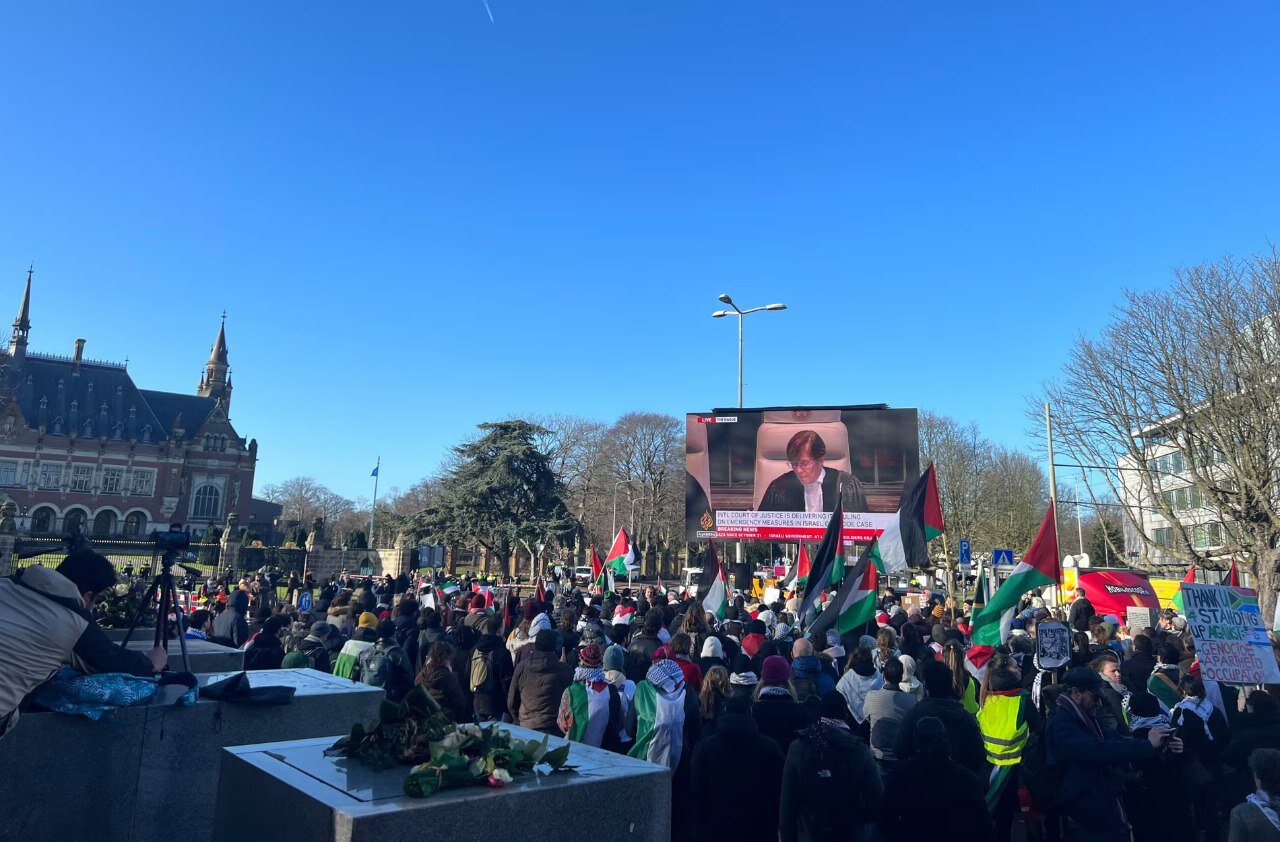Gaza’s victory this time in the Hague
ICJ issues emergency orders for Israel in Gaza genocide case, falls short of ordering a ceasefire

TEHRAN – In a much-anticipated decision on Friday, the International Court of Justice (ICJ) issued an order for Israel to take all necessary steps to minimize casualties and destruction in the besieged Gaza Strip.
The ruling followed a two-week deliberation by ICJ judges subsequent to South Africa's filing of a genocide case against Israel two months earlier. While the court requested provisional measures within Gaza, it stopped short of demanding an immediate ceasefire, which had also been requested by South Africa.
South Africa celebrated the ruling as a "decisive victory" for international rule of law. Expressing gratitude for the ICJ's prompt response, the government expressed appreciation for the provisional measures and voiced sincere hope that Israel would not obstruct the court's orders.
South Africa's detailed 84-page case against Israel contends that the regime has deliberately violated the 1948 Genocide Convention since the commencement of its latest onslaughts against the besieged Gaza Strip on October 7. In agreement with most of South Africa's arguments, the ICJ stated its belief that at least some of the alleged war crimes have taken place. Furthermore, the ICJ dismissed Israel’s appeal to dismiss the case, affirming its jurisdiction to adjudicate.
Under the ICJ's verdict, Israel is also mandated to permit humanitarian assistance into Gaza and prosecute acts instigating genocide in the territory, where nearly 26,000 Palestinians have lost their lives due to Israel’s deadly military campaign. The regime is required to present a report to the court within one month.
Palestinians both in Gaza and the West Bank welcomed the provisional measures. “The ICJ order is an important reminder that no state is above the law,” Palestinian Authority Foreign Minister Riyad al-Maliki said in a video statement, adding that the verdict “should serve as a wake-up call for Israel and actors who enabled its entrenched impunity.”
The Hamas resistance movement has also hailed the ruling. “The [International] Court of Justice’s decision is an important development which contributes to isolating Israel and exposing its crimes in Gaza,” it said in a statement.
Israeli politicians, however, reacted strongly to the verdict and have already made it clear that they won’t be respecting the UN court’s globally acclaimed decision.
Israeli Prime Minister Benjamin Netanyahu rejected the case which has been garnering huge international attention as "outrageous" and vowed to press ahead with its unrelenting war on the Palestinians. "We will continue to do what is necessary to defend our country and defend our people," he said.
One of the top members of Israel’s far-right cabinet, known for his racist and incendiary comments against Palestinians, seemed to mock the court’s order on social media. “Hague Shmague,” Itamar Ben-Gvir wrote on X shortly after the ruling was announced.
Human rights activists worldwide have voiced their disappointment at the absence of a mandate for an immediate ceasefire, although they acknowledge that the verdict could be viewed as a momentous triumph for the Palestinians, who have endured 75 years under Israel’s apartheid regime.
Some observers have also highlighted that the ICJ's decision can serve as a stepping stone to hold Israeli politicians complicit in war crimes against Palestinians accountable before the law.
